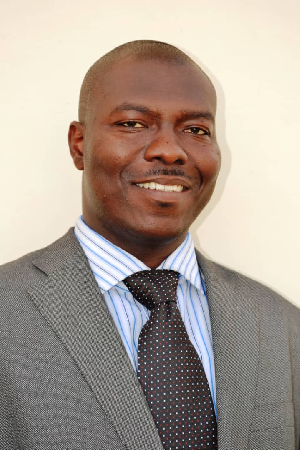- Home - News
- TWI News | TV
- Polls
- Year In Review
- News Archive
- Crime & Punishment
- Politics
- Regional
- Editorial
- Health
- Ghanaians Abroad
- Tabloid
- Africa
- Religion
- Election 2020
- Coronavirus
- News Videos | TV
- Photo Archives
- News Headlines
- Press Release
General News of Friday, 4 December 2009
Source: GNA
PLAN Int. calls for enforcement of laws on child marriage
Accra, Dec. 4, GNA - PLAN International has called on West African governments to strictly enforce laws that frown on forced and or child marriage to improve the sexual health of adolescents.
The international non-governmental child-centred community development organisation, also called for outlawing of female genital mutilation as well as protecting adolescent girls from sexual harassment in the sub-region. Launching its regional report on Adolescent sexual health in West Africa in Accra, PLAN said this would help end the increasing cases of maternal mortality and HIV/AIDS occurring among adolescent girls and improve the sub-region's chances of meeting the Millennium Development Goals. It said young girls died more often during pregnancy or child birth due to the complications that arose in their bid to cause abortion. In Ghana, the law allows girls of 16 years to have sex but disallow them to marry until they are 18 years but some older men have been engaging young girls in sexual intercourse resulting in teenage pregnancy. The report, authored by Dr Joseph Decosas, Regional Health Advisor, PLAN International, said despite the huge donor investments to combat HIV and other sexually transmitted diseases, adolescents and their sexual health needs and rights were often neglected in social development initiatives and national health policies and programmes of sub-regional governments. It said services and access to information for adolescents were severely restricted in the sub-region not only by current practices in public education and health services but also the perception that "they are too young to have sex".
The situation had made adolescents prone to sexual health risks and making them more vulnerable to HIV.
It said adolescents would by 2010 make one-fifth of Africa's population, which would reach more than one billion, adding that this made it imperative for them to have more education on AIDS and reproductive functions to develop life skills and take good decisions that would shape their sexuality and life choices.
The report also questioned whether HIV prevention programmes in the sub-region were adequately addressing issues of significant concern, including sexual health and well-being of adolescents since progress on the ground was relatively low.
The report, therefore, called on the sub-regional governments and donor organisations to make greater investments in sexual health and rights of adolescents.
It also called for the creation of the enabling environment to allow adolescents to access adequate information and participate in the design, implementation and monitoring of projects, policies and services concerning their sexual and reproductive health rights to improve the situation. Mr George Kumi-Kyeremeh, Director of Nursing Services at the Ministry of Health, who represented the sector Minister, said the revelations of the report pointed to a reminder of the damage HIV/AIDS was causing in the sub-region saying this called for adoption of proactive measures to prevent it.
Mr Samuel Paulos, PLAN Ghana Country Director said the prevalence of the HIV/AIDS was because of the ignorance among people and called for practical measures to deal with it.
He enumerated some of PLAN Ghana's projects, which included provision of potable water to deprived communities. There were also presentations by the United Nations AIDS Programme and World Health Organisation, both calling for empowerment and involvement of adolescents in decisions that affected their lives. Ms Philomena Hammond, a 17-year old adolescent, who is peer educator on adolescent sexual health, said lack of education on reproductive health from parents, sexual violence against girls, child labour, non-involvement of adolescents in decisions concerning them among other things were problems facing the proper development of teenagers.










